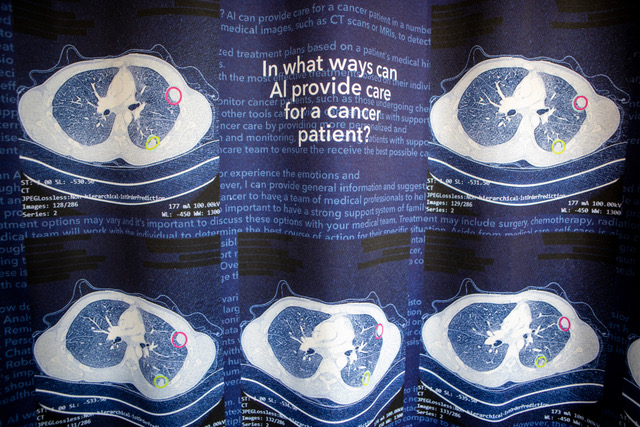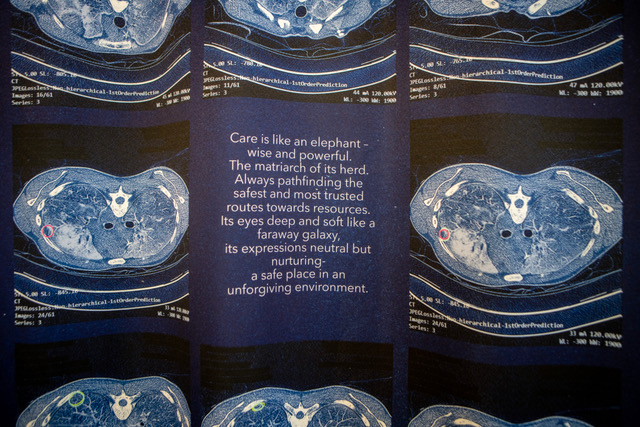Artist Sofie Layton Reflects: Can AI Look After Patients?

Sofie Layton is an artist with a significant and professionally acknowledged experience in participatory and public engagement practices. In this short blog post, she reflects on how AI might be utilised to care for patients or even, affect the empathy of healthcare professionals.
Sofie will be sharing more about this work on Friday 24th May 2024 during Creativity and Wellbeing Week.
Check here for ticket booking.
From analysing medical images to aiding diagnosis and treatment, AI is becoming widely used in healthcare. But how might it look after patients, or affect the expertise and empathy of healthcare professionals? Does AI Care? Was created as a collaborative commission for Science Gallery London which explored ideas of ‘care’ and the complexity of living with cancer, in relation to AI. Artist Sofie Layton worked alongside young adults (18-30 years) with experience of living with cancer, and researchers who use AI applications in medical imaging, radiotherapy, and surgery. Together, they considered how technological developments may shape a patient’s experience. They considered what being ‘cared’ for through an AI system might look like and who would be responsible if something went wrong.
The research for the process took place as a series of online workshops and one whole day face to face workshop at the Science Gallery. From the outset the ethics around the care of the participants both mentally and physically was considered and sensitively managed by the public engagement team at Kings. Being online allowed for participants who were immune compromised and geographically disparate to be involved but it also meant they were potentially emotionally isolated and therefore some of the complexities surrounding cancer treatment and their illness could not be addressed in the virtual space.
The group were guided through three creative workshops. In the first session they considered metaphorically what care looked like and who would care for them? For instance, if care was an animal it was described as a mother bear, fierce and protective, or like an elephant, wise and powerful. This premise was that care could become a holding form around which discussion could develop on how AI could support a patient’s health journey. The result was artwork which mixed participants’ narratives with responses from a Chatbot. In the second online session the group were asked to formulate questions to ask researchers about how AI is being developed for use in medical treatment. ‘What is intelligence one person asked?” Another asked “What if something goes wrong with a person’s medical care, is it the fault of the Doctor or the AI?” The oncologist replied it would be the doctors fault as AI is a tool rather than a care system. Overall the group were cautiously positive about the possibility of using AI in robotic surgery, as well as supporting clinicians to save time in diagnosis and treatment. However it was still viewed as alien and menacing in the ways similar to the cancer they were recovering from: neither was a benign presence.

The final artwork incorporated the groups’ writing and narratives which were (re)presented as a textile curtain which created a ‘hospital waiting room’. Within this room, an audience could listen to an audio piece that combined the participants’ various reflections on the nature of AI, cancer and care. This installation merged visual representations of the young adults’ multifaceted experiences of care with their personal medical images – realised as blueprints – along with text generated by the group and AI algorithms. The soundscape can be listened to at https://london.sciencegallery.com/ai-artworks/does-ai-care
